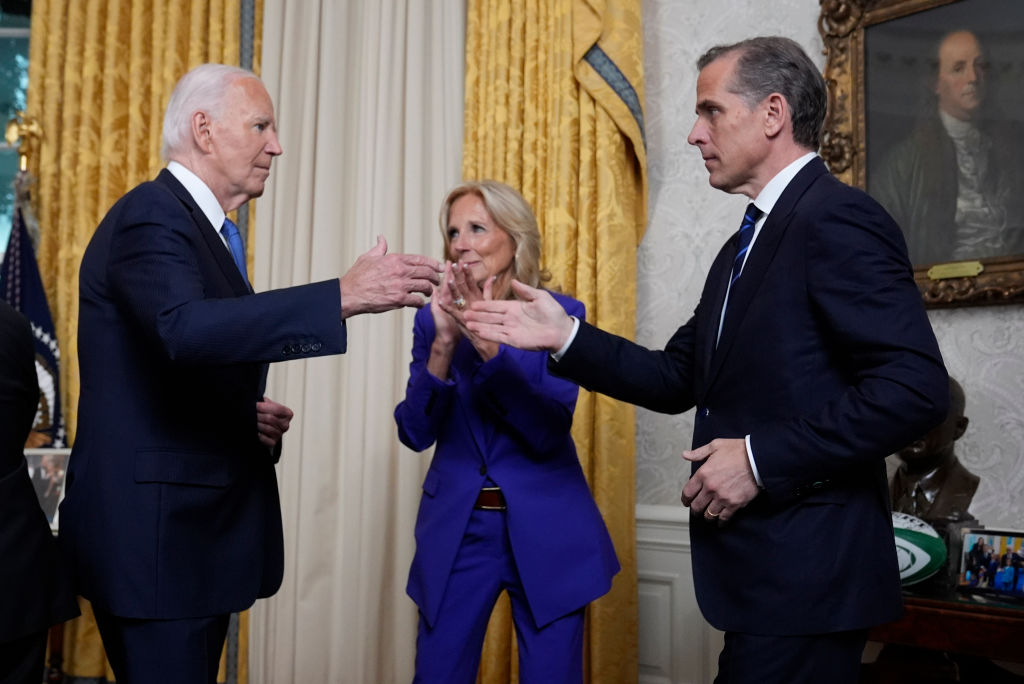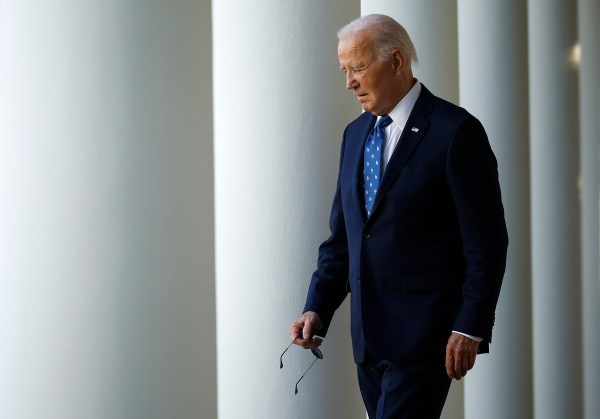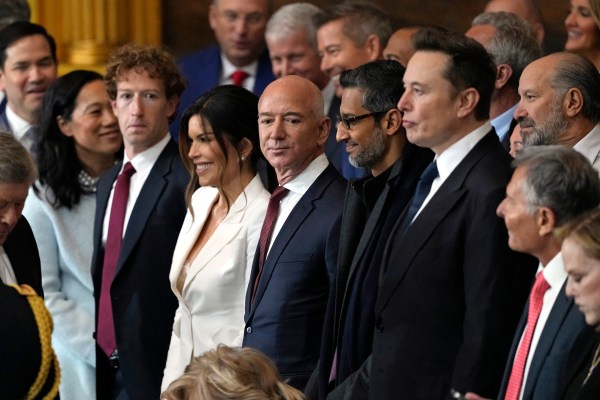Hey,
I feel like we haven’t talked in months. I don’t quite have my G-File sea legs yet, so be prepared for some zigs and zags as I veer one way or another like Pete Hegseth racing into the Fox & Friends studio the morning after a bachelor party.
We might as well start with the Hunter Biden pardon, but—beyond saying “it’s bad”—I’ll try not to repeat what many have already said.
One of the most common reactions in my corner of the world might be described as “shocked but not surprised.” I expected Hunter to get a pardon or some form of clemency, and flatly predicted it more than once, including on CNN last June. Sarah Isgur on Advisory Opinions, most of the gang over at National Review, and—I’m pretty sure—Commentary have said as much.
The philosopher Katie Stockdale has written some really interesting—and, for an academic philosopher, shockingly readable—stuff about the difference between shock and surprise. Specifically, she distinguishes between things that are not particularly surprising as a matter of probability—someone stealing your parking space, cutting in line at the movies, shoplifting in plain sight—but are so emotionally or morally disturbing that they short-circuit our thinking. “Moral shock is an immediate emotional response, one that occurs without all of the data we need to make sophisticated moral judgments,” she writes.
I’m not sure the Hunter pardon fits her framework—for me or many of my friends. But I do think for a lot of liberals it does. They actually believed that Joe Biden was the high-minded, fundamentally decent, good dude he cast himself as. They took him at his word.
Of course, they did this not just because they liked Joe Biden but also because they hated Donald Trump and wanted to believe that Biden is fundamentally, categorically, a better man than Trump. If Trump is the avatar for the Forces of Darkness in their eyes, then Biden must be the Paladin of Light.
If you want to wallow in the sanctimony and certainty this desire elicited, watch this:
Media Derangement Syndrome, again.
You know what? Let’s put a pin in the Biden stuff. I’ll swing back to it at the end.
You know what bothers me about that montage? The phrase “corporate media.” First of all, how is Fox News not “corporate media”? More to the point, one of the clips is from the same show where I predicted Biden would pardon Hunter. And Chris Wallace, the host of the show, shared my skepticism. If you can selectively curate clips to prove that “corporate media” is monolithically liberal, you can almost as easily prove it’s monolithically conservative. Heck, given enough time, you could make a supercut “proving” that “corporate media” can’t stop coughing.
Now, of course, the bulk of “mainstream media”—a flawed, but serviceable label—obviously leans, and often lunges, left. But as I wrote in my column this week, that matters far less than a lot of my friends on the right think it does. Heck, I myself used to think media bias was hugely important. And while I’m not saying it’s never hugely important, I just don’t think it’s the all-consuming issue many make it out to be.
I think the analytical error of exaggerating the importance of media bias, on the left or on the right, derives from the fact that media bias is incredibly annoying. Being lied to—manipulated, spun, conned, whatever—pisses people off. But just because something is incredibly annoying, even morally shocking, doesn’t mean it’s incredibly important. People get shot because of road rage. But everyone understands that cutting off someone on the highway should not actually be a capital offense.
You can easily create a montage of the same liberal “corporate media” types saying Biden wasn’t too old prior to his disastrous debate performance. That was really annoying. But you know what? Nobody outside MSNBC’s core audience actually believed it. Polling showed that a majority of Democrats thought he was too old to run again. How could that be if “corporate media” has this incredible power to dupe the public? The answer is that it doesn’t.
The media’s most powerful tool to influence people isn’t their status, authority, attractiveness, platforms or fame. It’s just facts. And often the most persuasively powerful facts are the stuff you can see and hear without any additional commentary from hosts or pundits. Biden’s unsteady shuffle and slurred words told the story. You could see the struggle in his eyes when he tried to remember things or find the right words, like a computer trying to pull data off a damaged hard drive.
The praetorians who said, “He’s never looked or sounded better!” may have reassured the people who wanted to believe it. But most Americans were like, “Are you kidding me?”
The same goes for the conspiracy theory that all negative opinions of Trump are simply the product of anti-Trump media coverage. In fact, it’s the same conspiracy theory. When Trump took over the COVID press conferences to ramble about his grievances, no one needed the New York Times or Rachel Maddow to tell them that was bad. They saw that stuff with their own eyes. Moreover, if “the media” were remotely as powerful as people claim, why did Trump win? Why haven’t guns been banned? The idea that “the media” drives policy and facts on the ground is simply wildly exaggerated.
Hawthorne’s bubble.
But one last point on this. In all of the postmortems over Kamala Harris’ defeat, I think those in the media have downplayed one of the most important factors: The media industry itself. Most Americans don’t consume a lot of news media. But Democratic politicians and activists follow it intensely—just as Republicans follow Fox News obsessively, though there are important sociological differences.
For instance, Joe Biden was a devoted Morning Joe viewer, and you could tell—both ways. In political science there’s a thing called the Hawthorne effect. People change their behavior when they know they’re being observed.
Something similar happens in media. Sunsetting Joe behaved as if he were performing for Morning Joe, and vice versa. Now, I like Joe Scarborough (“You wrote that because Scarborough reads you. Talk about the Hawthorne effect!”—The Couch). But I put it to you: If you make your political choices based on the approval of that Rockefeller Center Greek Chorus, you’re doing it wrong. The same goes for the Brahmins of the New York Times, Washington Post, The New Yorker, NPR, etc.
When the Post spiked its endorsement of Kamala Harris, 250,000 people canceled their digital subscriptions. That’s a huge number for the Post, but politically that’s the Pauline Kael demographic. The people who think a Washington Post endorsement matters politically are quite simply the last people in the world you should be taking political advice from.
I find all of the discussions in the mainstream media about how the Democratic Party needs to fix itself to be schadenfreudtastically amusing. Again, most Americans do not take their cues from “corporate media,” but corporate Democrats do. Where do you think Democrats got most of their bad—or unpopular—ideas from? Why do you think they were so terrified to seem “transphobic” or “pro-police”? Why did “Latinx” have legs for so long? Because Democrats believed the shadows on the wall of the corporate media cave were real. John Fetterman is wildly popular outside of the Democratic bubble because he doesn’t take his cues from that bubble. I don’t think Democrats should try to offend the delicate sensibilities of the mainstream media, I just don’t think they should care about their sensibilities. Lord knows, Donald Trump doesn’t.
Regardless, the right-wing article of faith that the mainstream media is a huge asset for Democrats—once definitely true—has outlived its utility. As often as not, it’s an albatross or an irrelevancy.
The unbearable lightness of Joe Biden.
By the way, earlier I said that progressives desperately wanted to believe that Joe Biden is a better man than Donald Trump.
I do think Biden is a better man than Donald Trump. At this point I think readers are familiar with my views on that score.
But—and I know this is difficult for some people to grasp—just because Biden is a better man than Trump, that doesn’t necessarily mean he’s a good man. I don’t think I need to belabor the point. But I think Biden has always been an intellectually insecure and vain guy. He was never a man of much real conviction, save that he wanted to seem like he was. Biden could be a crude demagogue—“put y’all back in chains,” Jim Crow 2.0 etc. —while also being a consummate ward-heeling hack who saw nothing wrong about bragging about his friendships with segregationists when it suited him.
I don’t hold Hunter’s personal sleaziness against his father, but I do hold Hunter’s professional sleaziness against him because Joe Biden let his son—and his brother—sell either the appearance of influence or actual influence.
I could go on, but I think Mike Warren has a good take on how Biden’s been a failure on his own terms and I think that failure stems entirely from Biden’s profound insecurity. Meanwhile I want to talk about …
The peril of grading morality on a curve.
I want to expand on this good man/bad man thing.
First of all, neither Trump nor Biden are like Hitler or Stalin or even close. But bear with me.
Was Hitler worse than Stalin? Some say, “Yes, absolutely.” Some say, “No, definitely not.” And others have nuanced positions somewhere in the middle. There are reasonable arguments on both sides that hinge on all manner of metrics, both subjective (motives, ideology, etc) and objective (body counts, methods, etc.).
But here’s the thing. If you want to say that Hitler was worse than Stalin, be my guest. What you can’t do is then make the leap to say that because Stalin was Hitler’s enemy, Stalin was therefore good.
And yet something like this happens all the time when we reduce questions of politics and morality to a binary. Team A is the enemy, and the enemy is bad. Therefore, Team B—our team—is good because it is the enemy of Team A. This form of argumentation has long been at the heart of a lot of left-wing thinking. If our enemies are fascists or racists, then we must be the opposite of fascists and racists, and therefore good. Even today, Russian propagandists will insist that Stalin was good because he “stopped Hitler.” If Hitler had been stopped by ass cancer, would you say, “Ass cancer is great?”
Whataboutism—the practice of deflecting accurate accusations against A by pointing out the shortcomings of B—may begin as a debater’s trick or rhetorical gambit. But it rarely stays at that level of abstraction. The rhetorical squid ink seeps into the skin and dyes the soul.
I often think that whataboutism is, or can be, a sin against God.
I guess I gotta explain that.
I can say, without fear of much contradiction, that I’m no biblical exegete. But to my understanding Abel was not without sin. He was, however, more righteous than Cain. In other words, God didn’t favor Abel because he was better than Cain. He favored Abel because Abel was more faithful to God. It would be a very weird religion, and a weirder king of the universe, that made Cain the standard by which all should be judged; “So long as you’re better than Cain, you’re good with God!” doesn’t make a lot of sense to me. Fidelity to God is the standard. Cain fell short, Abel didn’t.
It does not strain credulity to imagine a biblical story in which both Cain and Abel fell short of God’s expectations. In such a situation, I don’t think God would be compelled to say, “Well, I’ve got to give one of these guys an A and the other an F. So, I’ll reward the lesser evil.”
When I say whataboutism can be a sin I mean that whataboutism is a rejection of objective, external, standards and ideals in favor of purely relativistic and situational ones. That way lies nihilism and the rejection of all standards save strength and tribal loyalty.
But we do precisely this sort of thing all of the time in politics and life. Relatively better is translated into absolutely better and absolutely better quickly becomes objectively good.
To the frustration of some of my anti-Trump friends, I have been perfectly willing to engage with arguments that Donald Trump was the lesser of two evils in 2016, 2020, or 2024—at the ballot box. That doesn’t mean I agree with all such arguments. It merely means that I think reasonable people can disagree and score political choices differently. What I have zero patience for is the argument that simply because Trump is (allegedly) less bad than the alternative that he is therefore objectively good.
Listening to people defend the Kash Patel or short-lived Matt Gaetz nominations by pointing to the misdeeds—real and alleged—of the Biden DOJ or “Biden Crime Family” leaves me cold. The affirmative case against Biden’s abuses—again, real and alleged—is not an affirmative case for doing the same things in the opposite direction. Lots of people are ensorcelled by the perceived necessity to “fight fire with fire.” But if the other side’s methods are wrong, that doesn’t make your side right by doing the same thing.
The people defending Biden’s egregious pardon by pointing at Trump’s myriad egregious pardons are not actually defending Biden’s actions. The people who will—I predict with invincible confidence—defend Trump’s future egregious pardons in his second term by saying, “What about Hunter’s pardon?” won’t actually be defending Trump’s pardons on the merits. They will be saying that so long as you do something that is not as bad as what Biden did, it’s therefore good.
That’s the Cain standard.










Please note that we at The Dispatch hold ourselves, our work, and our commenters to a higher standard than other places on the internet. We welcome comments that foster genuine debate or discussion—including comments critical of us or our work—but responses that include ad hominem attacks on fellow Dispatch members or are intended to stoke fear and anger may be moderated.
With your membership, you only have the ability to comment on The Morning Dispatch articles. Consider upgrading to join the conversation everywhere.